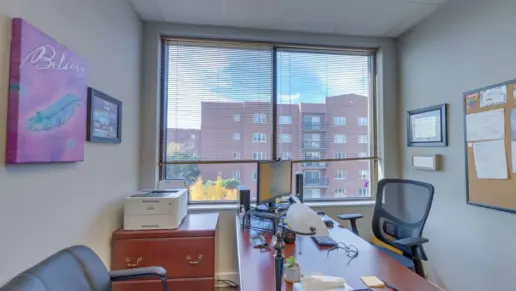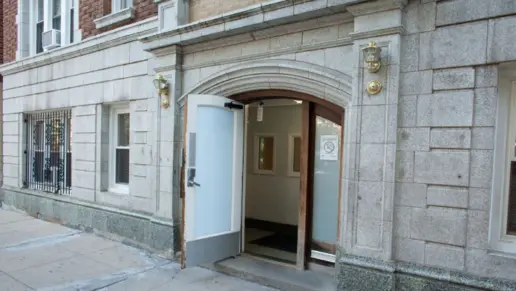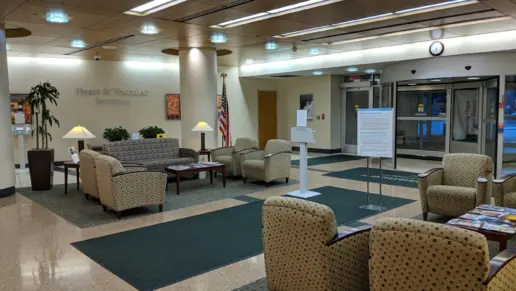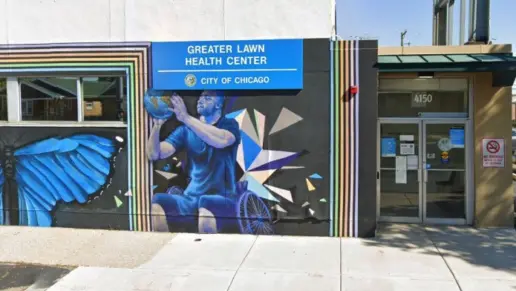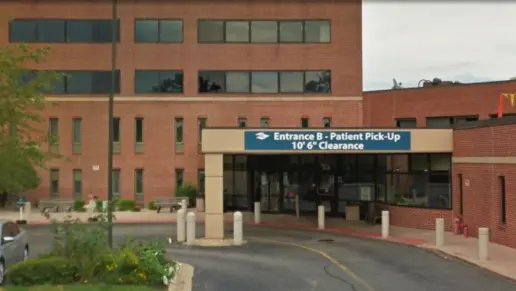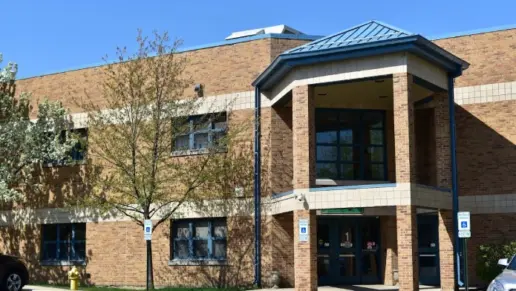About The Women’s Treatment Center – Closed
The Women’s Treatment Center was a nonprofit facility in Chicago, Illinois, that was dedicated to supporting chemically dependent women. They assisted clients who were facing challenges like homelessness, poverty, trauma and co-occurring mental health disorders.
I like that they offered family centered care by allowing mothers to bring children under six into treatment. The center accepted Medicaid, private insurance and offered free or low cost care for those who did not have insurance.
Comprehensive Detox and Residential Care
The center provided a full continuum of care that started with a medically supervised detoxification program. The detox program typically lasted four to six days and safely managed withdrawal from opioids, alcohol and other substances.
Their residential treatment lasted up to 120 days. The program included weekly individual counseling, trauma recovery, medical monitoring and parenting classes.
Special Programs and Outpatient Care
They had a pregnant and postpartum women’s program that addressed perinatal needs, while their residential rehab levels two, three and four offered structured care. Their intensive outpatient program (IOP) provided up to 12 hours weekly of gender specific groups.
The groups focused on drug education, relapse prevention and family reconciliation. Clients also learned life skills such as stress management and job readiness.
Medication assisted treatment (MAT) was provided when needed. They used methadone to support opioid addiction recovery.
Support For Sustained Recovery
Their transitional recovery home prioritized education and employment. I like that the facility had an on site daycare and pre-K for children. Federal grants funded the case management services for homeless women with dual diagnoses.
Facility Overview
Rehab Score
Gallery
Accepted Insurance
Other Forms of Payment
Private insurance refers to any kind of healthcare coverage that isn't from the state or federal government. This includes individual and family plans offered by an employer or purchased from the Insurance Marketplace. Every plan will have different requirements and out of pocket costs so be sure to get the full details before you start treatment.
Self-pay involves paying for treatment out of your own pocket. You can use savings or credit, get a personal loan, or receive help from family and friends to fund your treatment. If you don't have insurance or your insurance plan doesn't cover a specific program, self-pay can help ensure you still get the care you need.
Sliding scale payments are based on a client's income and family size. The goal is to make treatment affordable to everyone. By taking these factors into account, addiction recovery care providers help ensure that your treatment does not become a financial burden to you or your family, eliminating one barrier to care.
Medicare is a federal program that provides health insurance for those 65 and older. It also serves people under 65 with chronic and disabling health challenges. To use Medicare for addiction treatment you need to find a program that accepts Medicare and is in network with your plan. Out of pocket costs and preauthorization requirements vary, so always check with your provider.
Medicaid is a state based program that helps lower-income individuals and families pay for healthcare. Medicaid covers addiction treatment so those enrolled can use their coverage to pay for rehab. When a program accepts Medicaid the client often pays very little or nothing out of their own pocket.
Financial aid can take many forms. Centers may have grants or scholarships available to clients who meet eligibility requirements. Programs that receive SAMHSA grants may have financial aid available for those who need treatment as well. Grants and scholarships can help you pai for treatment without having to repay.
Addiction Treatments
Levels of Care
 Outpatient
Outpatient
 Inpatient
Inpatient
 Intensive Outpatient
Intensive Outpatient
 Aftercare Support
Aftercare Support
 12-Step
12-Step
 Sober Living Homes
Sober Living Homes
 24-Hour Clinical Care
24-Hour Clinical Care
 Medically Assisted Detox
Medically Assisted Detox
Treatments
The goal of treatment for alcoholism is abstinence. Those with poor social support, poor motivation, or psychiatric disorders tend to relapse within a few years of treatment. For these people, success is measured by longer periods of abstinence, reduced use of alcohol, better health, and improved social functioning. Recovery and Maintenance are usually based on 12 step programs and AA meetings.
Drug rehab in Illinois is designed to help people recover from addiction to a number of substances. The length of each program and its intensity tend to vary, and the plan of care is based on your individual needs.
Many of those suffering from addiction also suffer from mental or emotional illnesses like schizophrenia, bipolar disorder, depression, or anxiety disorders. Through a federal grant, TWTC now offers enhanced case management services for homeless women with a co-occurring diagnosis (substance use & mental illness).
Opioid rehabs specialize in supporting those recovering from opioid addiction. They treat those suffering from addiction to illegal opioids like heroin, as well as prescription drugs like oxycodone. These centers typically combine both physical as well as mental and emotional support to help stop addiction. Physical support often includes medical detox and subsequent medical support (including medication), and mental support includes in-depth therapy to address the underlying causes of addiction.
Substance rehabs focus on helping individuals recover from substance abuse, including alcohol and drug addiction (both illegal and prescription drugs). They often include the opportunity to engage in both individual as well as group therapy.
Programs

Adult Program

Young Adult Program

LGBTQ Program

Child Program

Program For Women
Clinical Services
If you engage in cognitive behavioral therapy in Illinois, your therapist will work with you to change your thinking patterns. You'll learn how to recognize faulty thinking and develop skills to deal with stress without using substances.
Dialectical behavior therapy in Illinois typically involves keeping a diary to track actions and emotions. Your therapist will use this diary to determine what to focus on during each session. In addition to individual sessions, you'll also attend group meetings where you are trained in coping skills.
Group therapy is any therapeutic work that happens in a group (not one-on-one). There are a number of different group therapy modalities, including support groups, experiential therapy, psycho-education, and more. Group therapy involves treatment as well as processing interaction between group members.
In individual therapy, a patient meets one-on-one with a trained psychologist or counselor. Therapy is a pivotal part of effective substance abuse treatment, as it often covers root causes of addiction, including challenges faced by the patient in their social, family, and work/school life.
Motivational interviewing in Illinois is person centered and collaborative. This method allows the therapist to come alongside the client to address the issue of ambivalence toward change. By listening and reflecting, the therapist helps the client see the need for change and commit to making changes.
TWTC provides trauma-informed treatment through specialty groups that utilize the Trauma Recovery and Empowerment model, an evidence-based approach to treating Post-Traumatic Stress Disorder in women. This model has become one of the major trauma recovery interventions for women.
Women who bring children into residential treatment receive parenting services that include intervention, assessment and education. Together, these strengthen clients’ parenting skills, help identify and reduce behaviors shown to contribute to child abuse and neglect, and improve mothers' ability to manage their children's behavior in a positive manner. Skilled practitioners, including Parent-Child Specialists and Parent Educators, work with mothers to help them develop an accurate knowledge base regarding child development and appropriate child-rearing practices. In groups and in individual sessions with staff, mothers explore ways to improve their relationships with their children and learn better ways to manage their child’s behavior. Nurse-led groups teach mothers about childbirth, childcare, and pre- and post-natal infant and maternal care.
Life skills training in Illinois gives you the tools you need to meet daily demands. These fall into three main categories: personal skills, interpersonal skills, and cognitive skills. While in rehab, you'll work on each of these areas as part of your recovery treatment.
Nutrition therapy, aka medical nutrition therapy (MNT), is a way of treating physical, emotional, and medical conditions through diet. Specific dietary plans are designed by professional nutritionists or registered dietitians, and patients follow them in order to positively affect their physical and mental health.
Amenities
-
Private Transportation
-
Residential Setting
Accreditations

The Joint Commission, formerly known as JCAHO, is a nonprofit organization that accredits rehab organizations and programs. Founded in 1951, the Joint Commision's mission is to improve the quality of patient care and demonstrating the quality of patient care.
Joint Commission Accreditation: Yes




